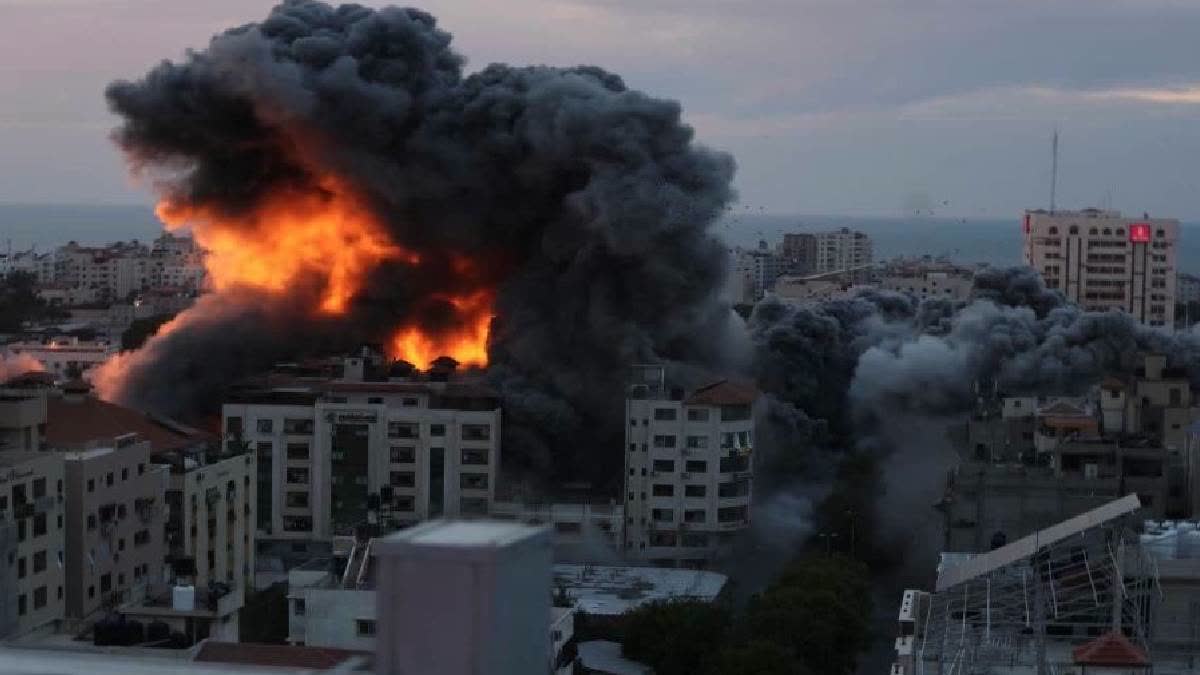New Delhi: As the world witnesses the deadliest war between Israel and Palestine, the concern is the implication it can have geopolitically on the Middle East and across the globe. The conflict is not only a concern for the global economy but also for the Indian economy, given its dependency on oil and its strong economic ties with Israel.
An expert told ETV Bharat that the global economy is not doing very well and if the war drags on, it will have an impact on the oil and gas prices which will have an impact on the broader energy situation in the world. The expert said that an already difficult energy environment is likely to become even more unpredictable. Both the global economy and the Indian economy may face a negative impact going forward because of the war, which would be a concern for the Indian policymakers.
Impact on the Indian economy: It is important to note that the surge in oil prices will certainly hit India hard as it is the third-largest importer of crude oil. This is not a good sign for a country like India also at a time when the country will go for Assembly elections in November in five major states. In fact, increased oil prices will certainly lead to inflation, thereby, weakening the economic growth of major importing countries like India.
In an interview with ETV Bharat, foreign policy expert and vice President for Studies at Observer Research Foundation (ORF), Prof Harsh V Pant said, “It is very difficult to say where the conflict with Hamas is heading towards because Israel has declared a state of war and the Israelis are shaken because it is the most unprecedented assaults the country has witnessed. This is not by another state but accomplished by non-state actors with support from a state like Iran probably. But the fact that the non-state actor could challenge the mighty Israeli security apparatus is something that Israel will have to ponder on”.
He explained that there will be domestic repercussions in Israel and at the moment Israelis are united as they want the perpetrators to be made accountable for their actions.
“It is a challenge for Israel because it inevitably will have to enter Gaza and use ground troops, something that Israel has been avoiding since 2005. As Hamas has hostages, it implies that almost door-to-door or campaign military conflict is likely to ensue. It is a very challenging posture for the state of affairs for Israel at the moment”, added Prof Pant.
The future of the Middle East is at stake: Prof. Pant said that the future of the Middle East is also somewhat uncertain because the normalisation that the Biden administration was pursuing between Saudi Arabia and Israel that would have been a 'transformative policy' is unlikely to happen now, he said.
The expert further noted that as the war drags on and popular opinion in the Arab world gets more 'polarised', the consequences can be disastrous not only for the region but for the world. He added: "There are huge issues at stake and it is a grave concern for a country like India, which also faces a security environment which is quite challenging when on-state actors with the support of states like Pakistan have nurtured hatred and benevolence against India. The terror groups learn from each other and if the tactics evolve and are directed against India, then there are lot that India has to worry about. Certainly, India has to take a tough stance on terrorism".
Implications on India: Professor Pant opined that India also has some balancing to do between the Arab states and Israel because New Delhi's own ties with Saudi Arabia and UAE have dramatically been transforming in the last few years. How India balances the relationship when Israel and the Arab world are likely to be even more polarised, would be a test of India's diplomatic abilities.
According to reports, Israeli Prime Minister Benjamin Netanyahu told U.S. President Joe Biden that Israel has no choice but to invade Gaza despite dozens of hostages with Hamas. Meanwhile, Prime Minister Narendra Modi, on Tuesday, spoke to Israel's Prime Minister Benjamin Netanyahu regarding the ongoing conflict with Palestine.
I thank Prime Minister @netanyahu for his phone call and for providing an update on the ongoing situation. The people of India stand firmly with Israel in this difficult hour. India strongly and unequivocally condemns terrorism in all its forms and manifestations", PM Modi posted in X.
Earlier on Monday, Israeli Defense Minister announced a total blockade on Gaza, and this blockade also included a ban on letting food and fuel enter the area. “I have ordered a complete siege on the Gaza Strip. There will be no electricity, no food, and no fuel, everything is closed. We are fighting human animals, and we act accordingly,” said Israeli Defense Minister Yoav Gallant.
India- Israel trade ties: Israel is a significant trade partner for India, ranking the third-largest in Asia and tenth globally. According to the Ministry of External Affairs, bilateral trade between the two countries has diversified into several sectors such as pharmaceuticals, agriculture, water, IT and telecom.
Major exports from India to Israel include precious stones and metals, chemical products, ts, and textiles. On the other hand, major exports from Israel to India include pearls and precious stones, chemical, and mineral/fertilizer products, petroleum oils, defence, etc.
Also Read: Israel-Hamas conflict: Israelis in Dharamshala eager to return home, join Army



